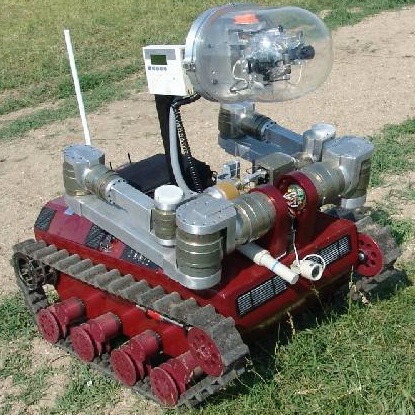We investigate a swarm of autonomous mobile robots in the Euclidean plane. A robot has a function called {\em target function} to determine the destination point from the robots' positions. All robots in the swarm conventionally take the same target function, but there is apparent limitation in problem-solving ability. We allow the robots to take different target functions. The number of different target functions necessary and sufficient to solve a problem $\Pi$ is called the {\em minimum algorithm size} (MAS) for $\Pi$. We establish the MASs for solving the gathering and related problems from {\bf any} initial configuration, i.e., in a {\bf self-stabilizing} manner. We show, for example, for $1 \leq c \leq n$, there is a problem $\Pi_c$ such that the MAS for the $\Pi_c$ is $c$, where $n$ is the size of swarm. The MAS for the gathering problem is 2, and the MAS for the fault tolerant gathering problem is 3, when $1 \leq f (< n)$ robots may crash, but the MAS for the problem of gathering all robot (including faulty ones) at a point is not solvable (even if all robots have distinct target functions), as long as a robot may crash.
翻译:----
我们调查了欧式平面上的自主移动机器人群体。机器人具有名为“目标函数”的功能,用于确定机器人位置到达的目的地。 群体中所有机器人通常使用相同的目标函数,但是在问题解决能力方面存在明显的局限性。我们允许机器人采用不同的目标函数。解决问题$\Pi$所需的不同目标函数数量称为$\Pi$的最小算法大小(MAS)。我们建立了解决聚集和相关问题的MAS,从任何初始配置开始,即以自稳定方式解决问题。例如,对于$1 \leqslant c \leqslant n$,存在问题$\Pi_c$,使得MAS为$c$,其中$n$是群体的大小。聚集问题的MAS为2,而容错聚集问题的MAS为3,当$1 \leqslant f (<n)$个机器人可能崩溃时,但即使机器人可能崩溃,聚集所有机器人(包括有故障的机器人)到一个点的问题也无法解决(即使所有机器人具有不同的目标函数)。



